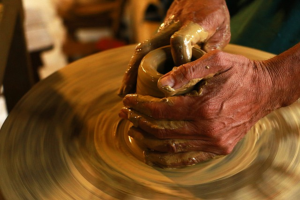April 2025 African Proverb of the Month If it is not broken don’t fix it. Sukuma (Tanzania) Proverb
 |
Olu idabhenzekile uzidebhageleja. (Sukuma) Ikiwa haijavunjika usirekebishe. (Swahili) Si ce n’est pas cassé, ne le réparez pas. (French) If it is not broken don’t fix it. (English) |
Sukuma(Tanzania) Proverb
Background, Meaning and Everyday Use
The Sukuma people are found in northern part of Tanzania. The regions where they are found are: Shinyanga, Simiyu, Mwanza, Geita, Katavi and Tabora. Sukuma is the biggest ethnic group in the country. It estimated to reach 10 million people that represents 16% of the inhabitants of Tanzania. The word “Wasukuma” means “Northern People.” Because the Sukuma stayed in the north they decided to call themselves Sukuma.
These people work as farmers and pastoralists. They are tolerant, peaceful, calm and have jokes for anybody. They teach each other by using proverbs, riddles, wise sayings and drumming in order to mediate, educate, criticize, console, entertain and also encourage people as the proverb says: If it is not broken don’t fix it. When you recognize that something is in a satisfactory state, there is no reason to change it.
There was a woman who was working in a pottery factory. She started to fix strong pots by remolding them. She damaged them even more until they broke. When the buyers came, they rejected them because they were bad. That’s why the Sukuma people say If it is not broken don’t fix it. This saying is compared to the person who likes to negatively judge innocent people and criticize them. The woman’s act of remaking the pots makes her lose her peace of mind after destroying all the pots. This person is similar to people who consider themselves as good and end up looking at the mistakes of others. They can also up miss the Kingdom of God. But the good ones who were judged as sinners see the Kingdom of God.
Biblical Parallels
Mark 9:40: “Anyone who is not against us is for us.”
Matthew 19:2: “Then Peter answered and said, ‘look we have left everything and followed you. What are we to have, then?’”
Genesis 4:8: “Cain said to his brother Abel, ‘let us go out’ and while they were in the open country, Cain set on his brother Abel and killed him.”
Mark 10:47-48: “When heard that it was Jesus of Nazareth, he began to shout and cry out, ‘Son of David, Jesus, have pity on me.’ And many of them scolded him and told him to keep quiet.”
2 Corinthians 13:11: “To end then, brothers we wish you joy try to grow perfect, encourage one another, have a common mind and live in peace. And the God of love and peace will be with you.”


Contemporary Use And Religious Application
This Sukuma proverb encourages people to get rid of the habit of negatively judging everything by not seeing the good in others. Especially if they realize that those people are not flawed, they should not continue to insist on correcting their behavior. This proverb helps Christians to encourage themselves in their daily worries. It helps them to find enough strength to confess their mistakes once they realize that they have failed in order to stand up and move forward again.
This proverb warns Christians that they should love and help each other in their daily lives and stop pointing fingers and judging each other but rather consult and admonish each other with love. This proverb makes people understand the consequences of following the lives of others and forgetting to reflect on their own lives. So, with that attention they can save their lives.
Therefore, we are in a period of globalization. Let’s encourage our children to participate in Small Christian Communities so that they can learn good values of Christian virtues, so they can be strong in faith enough to set goals in their lives and especially to have the fear of God. So that when they meet with temptations, they can overcome them with the armor of faith.
Text by:
Sister Lucia Deus Shelembi
Collegine Sisters of the Holy Family
Nairobi, Kenya
Smartphone No: +254703201330 (also WhatsApp)
Photographs by:
Rev. Zakaria Kashinje, OSA
Dar es Salaam, Tanzania
Cellphones:
+255-756-887787 Vodacom
+255-717-3337787 Tigo
+255-786-337787 Airtel
Email: zkashinje@gmail.com
zkashinje@yahoo.co.uk
